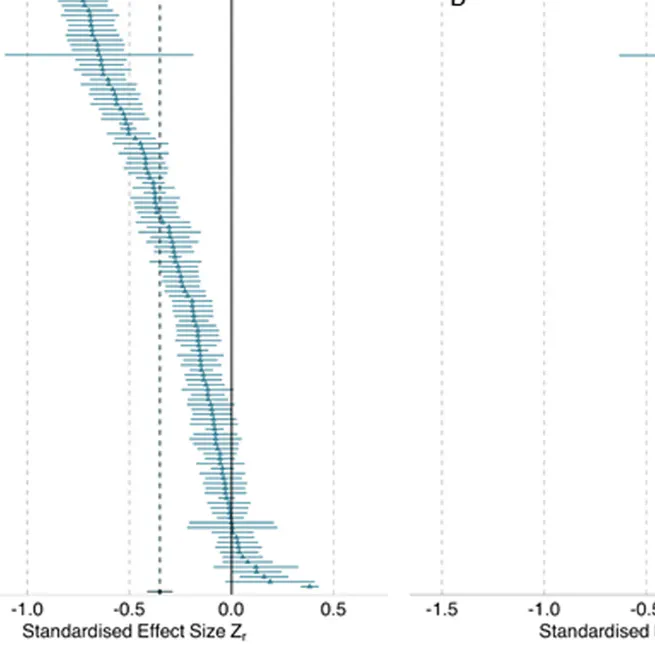
This study examines the variability in effect sizes due to analytical decisions among researchers analyzing the same ecological and evolutionary datasets.
Jan 1, 2025
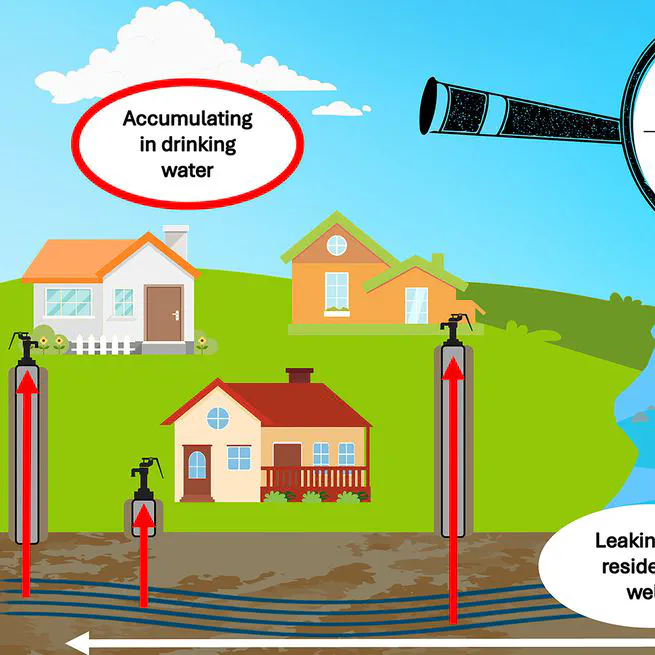
This study assesses PFAS contamination in private wells near a rural high school in Maine, highlighting environmental and public health concerns.
Dec 1, 2024
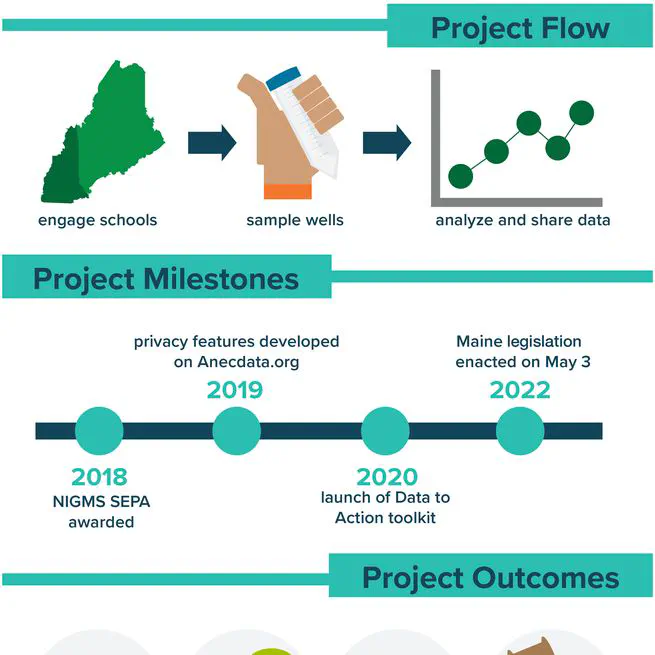
This study explores the public health impact of the All About Arsenic project, a school-based citizen science initiative focused on arsenic contamination in well water in Maine and New Hampshire.
Aug 21, 2024
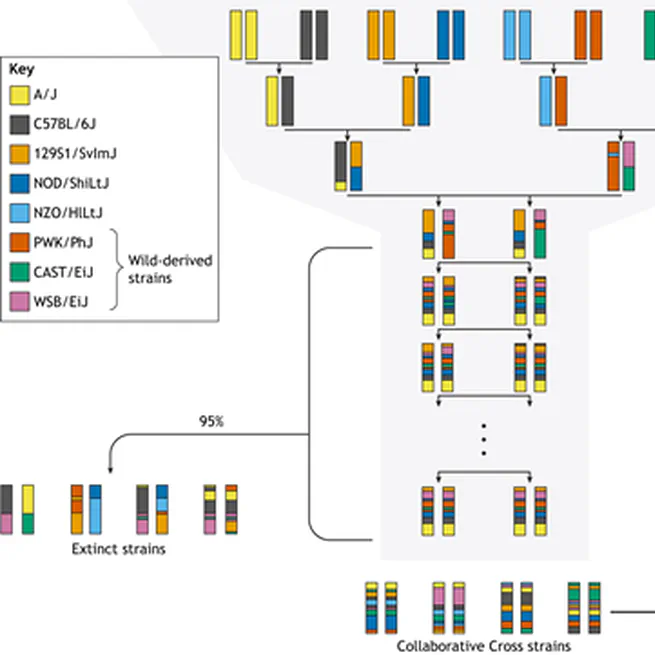
Genetic analyses of mammalian gametogenesis and fertility have the potential to inform about two important and interrelated clinical areas: infertility and contraception. Here, we address the genetics and genomics underlying gamete formation, productivity and function in the context of reproductive success in mammalian systems, primarily mouse and human.
Feb 13, 2023
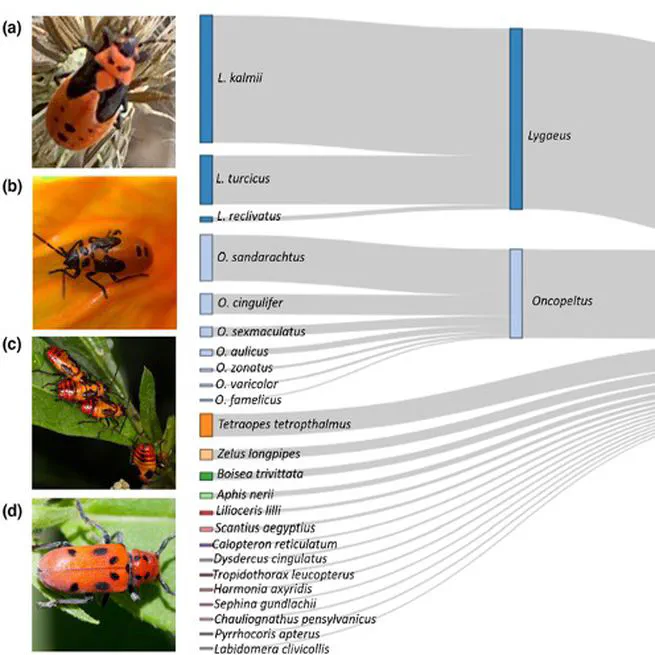
Using data across a species' whole distribution is critical for exposing regional variations, especially for species with large, continental-scale ranges. This study demonstrates the potential of photodocumented biodiversity data to aid in the monitoring of life history, host plant–insect interactions, and climate responsiveness.
Jan 7, 2023
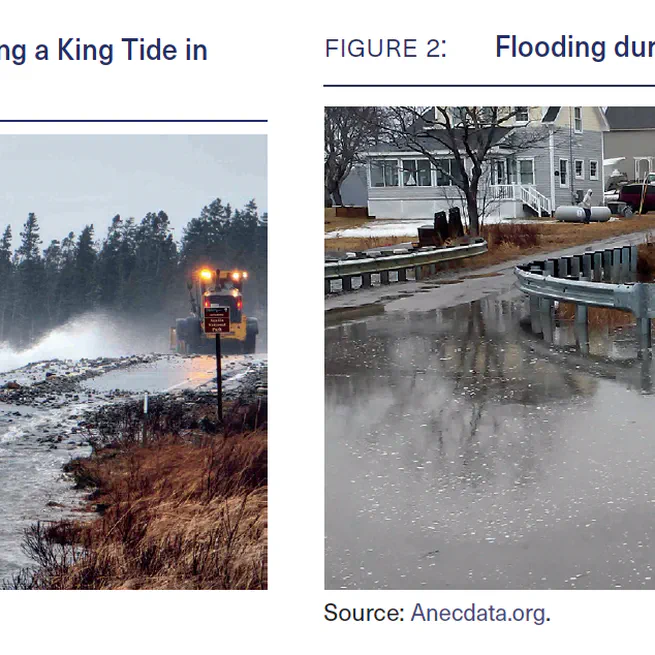
Here, we review Maine coastal projects on the Anecdata platform, examine the environmental trends highlighted in these projects, and discuss how citizen science data can play a role in coastal decision-making. These case studies will demonstrate the utility of citizen and community science approaches to monitoring Maine coastal ecosystems, understanding and predicting the impacts of climate change, and informing policymaking for coastal conservation.
Jan 1, 2023
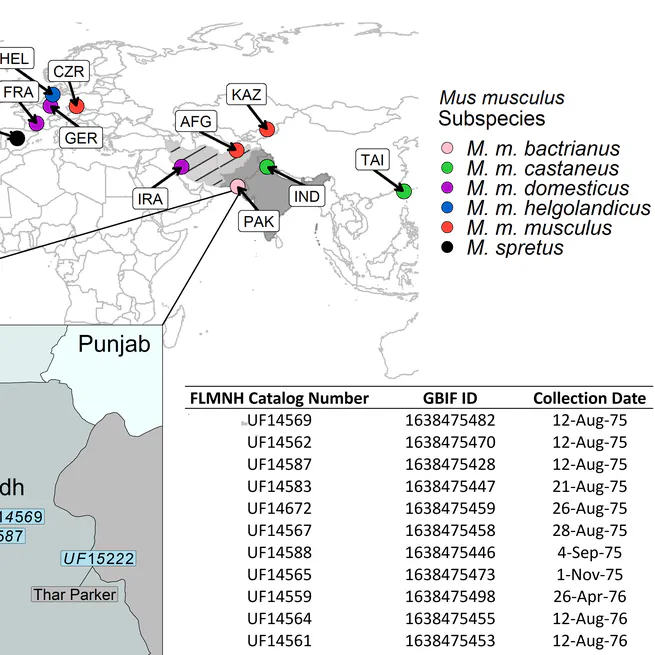
Overall, our work suggests that the M. m. bactrianus and M. m. helgolandicus subspecies are not well-justified taxonomic entities, emphasizing the importance of leveraging whole-genome sequence data to inform subspecies designations. Additionally, our investigation provides tailored experimental procedures for generating whole genome sequences from air-dried mouse skins, along with key genomic resources to inform future genomic studies of wild mouse diversity.
Nov 8, 2022
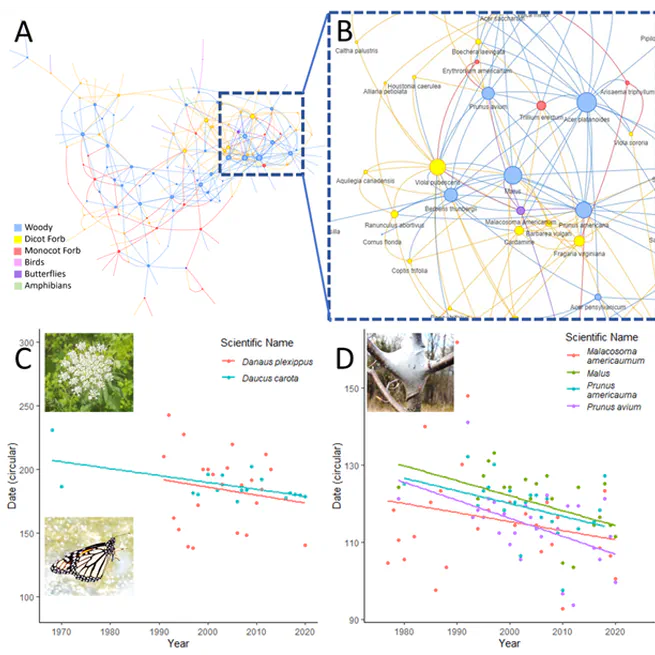
We present more than 100-years of phenological data
Jul 11, 2022
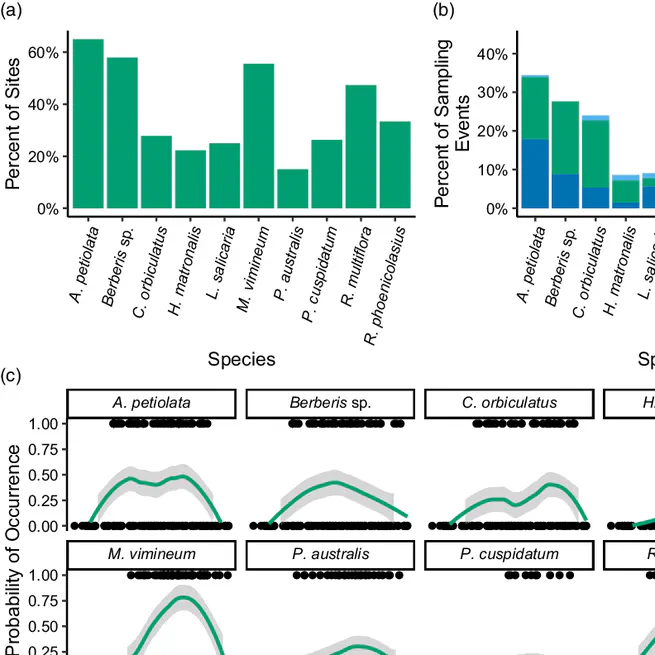
Our case study of community-collected data in the Hudson River Valley region using a relatively simple monitoring protocol can provide a road map for other regions fostering volunteer engagement with invasive plants.
Jan 12, 2022
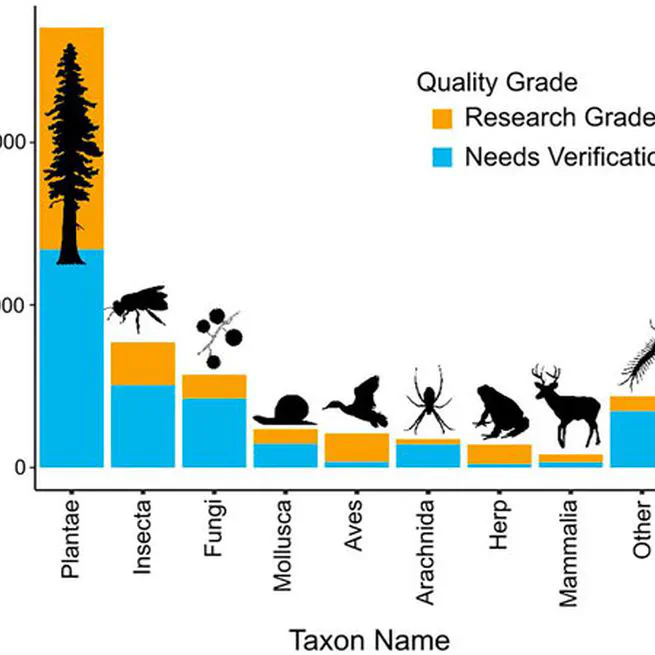
Guided by the six elements of Translational Ecology (TE; i.e., decision-framing, collaboration, engagement, commitment, process, and communication), we showcase the first explicit example of a Translational Science Education (TSE) effort in the coastal redwood ecosystem of Humboldt County, CA.
Dec 14, 2021